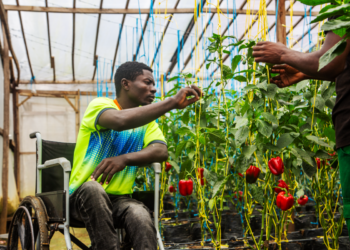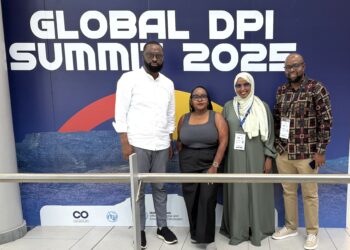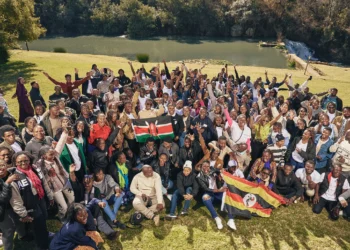African governments and development agencies have embraced science, technology and innovation as levers for development over the past two decades. Science, technology and innovation boost productivity, cut transaction costs, open new business opportunities and promote social inclusion. They also help societies tackle grand challenges such as climate change and persistent poverty.
By 2020, at least 25 African countries had a national policy framework for science, technology and innovation. This compares with only about 8 in 2010.
Science, technology and innovation measurements are essential because they allow policymakers to see whether investments are yielding results. Without adequate metrics, scarce resources can be misdirected, and progress towards Africa’s development goals will stall.
But are African governments, development partners, and scholars measuring what matters?
As a group of researchers who have spent years studying science, technology and innovation systems in South Africa, Nigeria and other African countries, we sought to answer this question.
In a recent study, we found that the indicators used to track innovation in Africa are largely borrowed from high-income countries and may be missing the mark.
If innovation is to help solve Africa’s challenges – like youth unemployment, food insecurity, digital exclusion and climate vulnerability – then the way African governments measure it needs to change.
The measurement gap
Innovation indicators such as research and development expenditure, patent counts and numbers of researchers are useful. But only up to a point. They assume a formal, high-tech, research-intensive model of innovation typical of rich countries.
In contrast, African economies are dominated by informal firms, grassroots inventiveness and frugal solutions born of necessity.
Our systematic review of 42 peer-reviewed publications published between 2008 and 2024 shows that research on science, technology and innovation measurement in Africa is growing. But it remains fragmented and limited in scope.
Most studies focus on South Africa and Nigeria, leaving much of the continent under-researched. Even in those two countries, the focus has been more on adopting global standards than developing homegrown alternatives.
We searched bibliographic databases with keywords including “innovation” and “Africa”. We also tracked the geographical location of the authors of papers that cited the 42 in our sample. This is a way to identify where related studies are taking place. We included only countries with at least five papers. Nigeria and South Africa were the only two African countries that qualified.
Innovation that goes uncounted
Many of Africa’s most effective innovations happen “under the radar” – in farms, markets, workshops and neighbourhoods. This is almost impossible to quantify.
Examples would be a mobile money agent in rural Kenya who finds a way to securely transfer funds without a formal banking system. Or a mechanic in Nigeria who modifies second-hand engines to run on local fuel blends. These are genuine innovations, yet they rarely show up in conventional data.
The problem is not just one of visibility, but of conceptual mismatch. Much of Africa’s innovation is incremental, necessity-driven and based on doing, using and interacting, rather than on structured research and development or formal science. Current indicators simply aren’t designed to capture this.
Why measurement matters
Some may ask: why does it matter how Africa measures innovation? The answer lies in policy. What we measure shapes what we fund, what we support and ultimately what we value. If African policymakers rely on indicators that ignore the informal sector or discount indigenous knowledge, policies might miss a lot of economic and social activity.
Moreover, global development goals such as the UN Sustainable Development Goals and the African Union STI Strategy for Africa require better evidence to track progress. Africa cannot assess how science, technology and innovation contribute to food security, health access or climate adaptation if data are blind to realities.
Towards a new agenda
So how do we start measuring what truly matters in Africa?
Our research identifies six key areas for action:
- Align the measurement with the Sustainable Development Goals: Indicators must reflect how innovation contributes to solving real-life problems like clean water, renewable energy, or maternal health; not just how many patents were filed.
- Improve data quality and governance: Many African countries lack consistent data collection systems. They need institutional capacity and more inclusive survey methods.
- Recognise diverse modes of innovation: From grassroots tinkering to digital entrepreneurship, innovation in Africa takes many forms.
- Focus on the informal sector: This is where most Africans work and innovate. The International Labour Organisation estimates that 83% of all employment in Africa in 2024 was in the informal economy.
Pioneering efforts in South Africa and Nigeria are adapting innovation surveys to informal businesses.
For example, South Africa’s Centre for Science, Technology and Innovation Indicators completed the first systematic survey of innovation in South Africa’s informal sector in 2018. A similar survey has since been conducted in Nigeria.
- Track digitalisation: Africa’s digital transformation, from mobile banking to e-health, is real, but under-measured.
- Integrate environmental sustainability: Green innovation remains a blind spot. With climate impacts growing, we need to understand how innovation can support resilience, not just growth.
Learning from the global south
Other regions have made headway with innovation metrics. Latin America developed the Bogota Manual in the 1990s to adapt innovation measurement to local contexts. Asia’s rising economies are also investing heavily in new metrics. Africa can learn from these experiences.
Our analysis shows that most highly cited work on African science, technology and innovation is authored outside the continent. Africa needs to grow a critical mass of African scholars generating theory and evidence about African innovation, for African development.
A call to action
With the African Continental Free Trade Area, rapid urbanisation and a booming youth population, the continent is poised for transformation. But this must be guided by data that reflect its realities.
To get there, Africa must develop, test and institutionalise new metrics. This means investing in local research, strengthening institutions and collaborating across countries and sectors.
Africa must define and measure innovation on its own terms. Only then can its data lead to policies that empower people, create jobs and build resilience.
This article, which was first published by The Conversation, was co-authored by Abiodun Egbetokun (Senior Lecturer, De Montfort University), David Adeyeye and Maruf Sanni (National Centre for Technology Management), and Glenda Kruss and Il-haam Petersen (Human Sciences Research Council).










